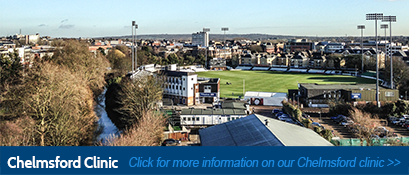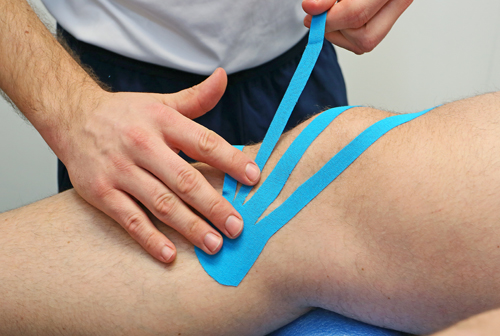Posterior lateral corner
Pain in back of the outside part of the knee can be labelled as a posterior lateral corner injury. However this is a general term as different structures may be at fault causing the symptoms. If symptoms start after a traumatic injury, tests to rule out posterior cruciate ligament injury, posterior knee joint capsule injury & hamstring tendon injury to name a few, need to be performed. The structure at fault will depend on the mechanism of injury and in some cases the pain in the posterior lateral corner could have a gradual onset. Timescales on return to full activity varies on the type of injury attained. Some people report giving way (instability) of the knee. Most pathologies respond to physiotherapy treatment.
What you can do:
If acutely injured, use of ice, analgesics and compression can be helpful.
How we can help:
These types of injuries are difficult to manage without knowing which structures are at fault. Therefore it is recommended that a full physiotherapy assessment be performed to optimise recovery and management.
Physiotherapy treatment normally consists of soft tissue Massage joint mobilisation electrotherapy, taping techniques and a robust exercise programme.
Benefits of treatment include:
-Less pain
-Improved movement and muscle control
-Improved confidence in knee
Whiplash
Whiplash is a condition which is normally associated with car accidents and now is defined a whiplash associated disorder (WAD). Symptoms vary from person to person following an accident, so is therefore classified in to 4 sub sections.
The classification is in the table below.
Classification Grades |
Physical and psychological impairments present |
Whiplash Associated Disorder 0 |
No complaints about neck pain |
Whiplash Associated Disorder I |
No complaints of pain, stiffness or tenderness only |
Whiplash Associated Disorder IIA |
Neck complaint |
Whiplash Associated Disorder IIB |
Neck complaint |
Whiplash Associated Disorder IIC |
Neck complaint |
Whiplash Associated Disorder III |
Neck complaint |
Whiplash Associated Disorder IV |
Fracture or dislocation |
Depending on your symptoms and level of function following your accident, your injury is classified as above. Whilst this helps label your condition, ultimately this informs how your condition should be managed. Research suggests education of the condition, recovery and self help strategies along side pain medication, exercise and physiotherapy can be helpful to enable a quicker recovery. Most people recover fully after WAD, with a small percentage of people going onto develop ongoing pain and dysfunction.
To arrange an appointment or speak to a physiotherapist, call or email on:
Southend on Sea: 01702 521 042 or info@physioacademy.co.uk
Chelmsford: 01245 254 069 or chelmsford@physioacademy.co.uk





























